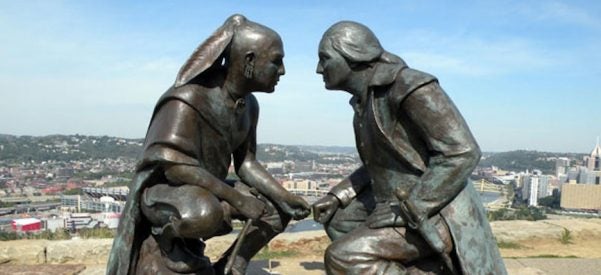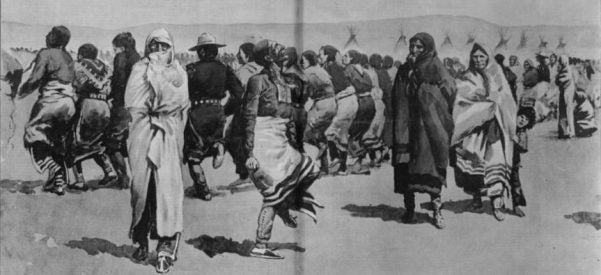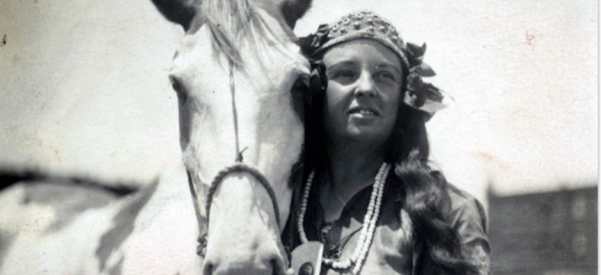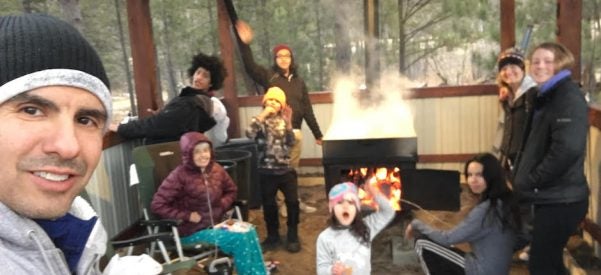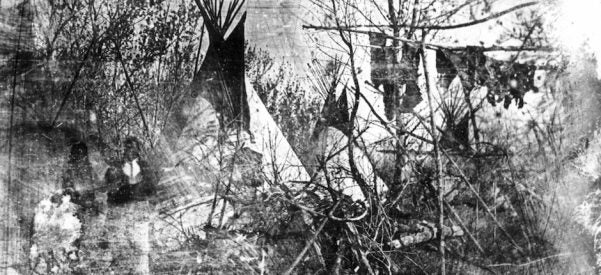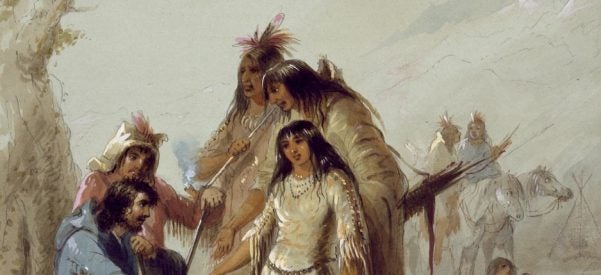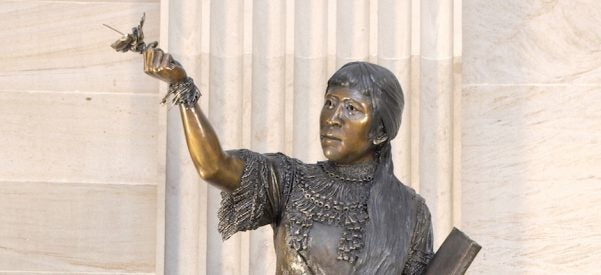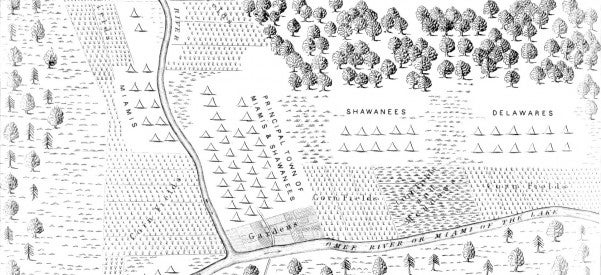Explore
: American Indian
The First President Offered Indians a Place in American Society—or Bloodshed If They Refused
By Colin Calloway
August 2, 2018
There are certain things about the nation’s founding era that many Americans don’t want to see messed with. The Declaration of Independence, despite its inaccurate claims that King George had already unleashed Indian warriors against the frontier, is an almost sacred text.
And George Washington, despite the barrage of criticism he attracted during his second administration, sometimes seems immune from criticism.
While I was working on a new book about Washington, someone asked me: “You’re not going to say anything …
Read More >
By Clamping Down on the Indian Ghost Dance, the U.S. Government Sparked a Tragedy
By Louis S. Warren
July 6, 2017
The Wounded Knee Massacre of 1890 appears in many history textbooks as the “end of the Indian Wars” and a signal moment in the closing of the Western frontier. The atrocity had many causes, but its immediate one was the U.S. government’s effort to ban a religion: the Ghost Dance, a new Indian faith that had swept Western reservations over the previous year.
The history of this episode—in which the U.S. Army opened fire on a mostly unarmed village of …
Read More >
By Reinventing Herself as Indian, Lillian Smith Became a Wild West Sensation—and Escaped an Unhappy Past
By By Julia Bricklin
May 5, 2017
At about 10:30 a.m. on the morning of August 3, 1901, more than 100,000 people jostled to catch a glimpse of Frederick Cummins’ Indian Congress parade at the Pan-American Exhibition in Buffalo, New York. The crowds shrieked with excitement when they heard the Carlisle Indian Band strike up a tune, and drew a collective gasp when three celebrities appeared on their respective steeds. There was Geronimo, the aged Apache chief, and Martha “Calamity Jane” Canary, the frontierswoman and scout of …
Read More >
Championing My Heritage Began with Their Half-True American Dream
By Anton Treuer
April 21, 2017
In my professional life, as a professor of the Ojibwe language and culture, I work to teach and revitalize the Ojibwe language, one of more than 500 tribal languages spoken here before Europeans arrived. I also travel frequently to run racial equity and cultural competency trainings.
My work is a passion and a calling. Sometimes it surprises people to hear that it grows out of an inheritance I received from both of my parents: my Native American mother, to be …
Read More >
The Sole Surviving Image of the Perilous Journey Provides a Crucial Bridge to History
By Steve Rivo
January 27, 2017
On a cold day in late November 1853, in a place called Big Timbers, in what is today southeastern Colorado, a Jewish photographer named Solomon Nunes Carvalho hoisted his ten-pound daguerreotype camera onto a tripod and aimed his lens at a pair of Cheyenne Indians. At first glance, the resulting image, scratched and faded from years of neglect, seems unremarkable. But in fact it is probably the oldest existing photograph of Native Americans taken on location in the western United …
Read More >
Until 1930, American Women Like Harriett Gold Lost Their Citizenship When They Married Foreign Nationals, Even If Those “Foreigners” Were Native Americans
By Ann McGrath
July 28, 2016
Mixed couples in the United States—those who crossed boundaries between Indian Nations and the European newcomers—left permanent legacies well beyond the families they created. They also shaped the meaning of nation and citizenship.
Historically, U.S. policymakers were troubled by such marriages not only on the grounds of race, but also because they created conflicting loyalties within the American nation. The questions of consent and coercion are at the essence of contests over sovereignty. And consent is a central tenet of …
Read More >
As a Translator for the Northern Paiute, Sarah Winnemucca Was an Outspoken Critic of Their Harsh Treatment in the American West
By Rosalyn Eves
July 21, 2016
For the first few years of her life, Sarah Winnemucca, who was born around 1844, did not know that she was American. Born Thocmetony (Shell Flower) among the Numa (known among whites as the Northern Paiute or “digger” Indians), she roamed with her people over western Nevada and eastern Oregon, gathering plants and fish from local lakes. But even during her early years, Winnemucca had learned to be afraid of the men with “white” (blue) eyes, who looked like owls …
Read More >
While We Remember Little Bighorn, That Wasn't the Battle That Led to the First Congressional Investigation in U.S. History.
By Colin G. Calloway
June 9, 2015
In less than three hours on November 4, 1791, American Indians destroyed the United States Army, inflicting more than 900 casualties on a force of some 1,400 men. Proportionately it was the biggest military disaster the United States ever suffered. It was also the biggest victory American Indians ever won. Yet it was quickly consigned to the footnotes of history.
Unlike the much more famous Battle of the Little Bighorn in 1876, when American Indians annihilated George Armstrong Custer’s command, …
Read More >


